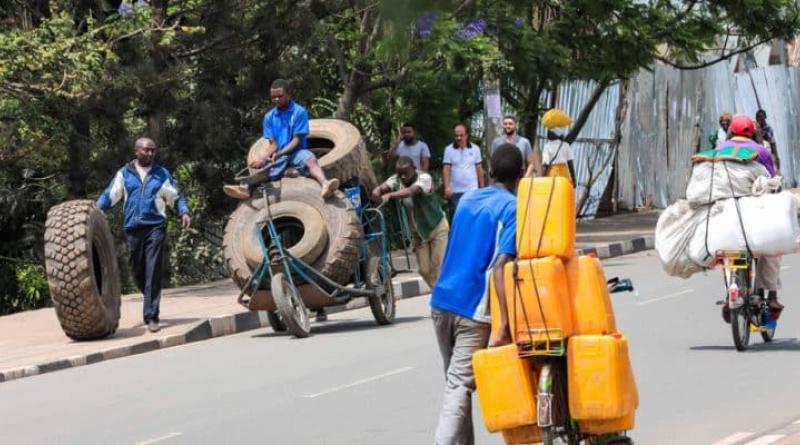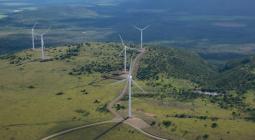AFRICA: the city of today: the test of the demographic explosion and the climate

As the second edition of the International Economic Days of Municipalities in Cameroon (JEICOM23), closed last Saturday at the Congress Hall in Yaoundé, the Afrik21 editorial team takes a closer look at the challenges facing African cities in an environment where food insecurity, natural disasters, poor access to water and electricity, and pollution are all looming large.
In Africa, the demographic explosion is no longer an issue; it is an imperative. With its 1.4 billion inhabitants today, the continent is at the forefront of a number of economic and environmental challenges that can no longer be dissociated from the living environment in which this population evolves. And it is particularly in urban areas, especially in those metropolises that are fairly densely populated from one region to another, that the phenomenon is becoming pressing.
The cities of East Africa, for example, are torn between floods and drought. These climatic hazards often have an impact on people’s livelihoods. In recent years, Nairobi in Kenya, for example, has become accustomed to prolonged droughts that weaken its floral potential. The situation is just as familiar in Addis Ababa, the capital of Africa. There, extreme heat and a rising birth rate go hand in hand with the risk of malnutrition, exacerbated by the drying up of harvests.
Between climatic hazards and precarious access to basic services
In Rwanda, the provinces are most concerned about deadly storms. The most recent storms in May 2023 destroyed 20 national roads, 12 power stations, eight water purification plants and 6,000 houses, displacing 20,000 people in particular to the capital, Kigali, which is already overcrowded with 1.5 million city dwellers. The situation is even more complex in Kinshasa in the Democratic Republic of Congo (DRC), home to 17.2 million people. Africa’s third most populous city (after Lagos in Nigeria and Cairo in Egypt) is not spared from flooding, particularly in these wet weather conditions. The heavy human and environmental toll of these climatic episodes calls into question the dilapidated state of the drainage facilities and the opening up of access routes to the riverbanks.
In terms of electricity, 43% of the continent’s total population is not connected to an electricity network. Most of them live in countries like Burundi, including right in the heart of the economic hub of Bujumbura, where torches still work. If we add to this the delay in implementing the United Nations’ sixth sustainable development goal (SDG), the bill becomes severe for several African cities. This is the case in N’Djamena, where, according to the African Development Bank (AfDB), the rate of access to drinking water will be 53% by 2021, and to sanitation 30%.
Air quality at risk
The beautiful city of Chad is also one of the most polluted in the world, according to a report on air quality recently published by the Swiss environmental organisation IQAir. North Africa is the most urbanised region in the world, with 78% of the population living in cities, according to the United Nations (UN), and has to contend with the carbon dioxide (CO2) emissions generated daily by combustion-powered vehicles. Although the region has a public transport network (buses and trains) that is less defective than south of the Sahara, air pollution is also coupled with the environmental impact of the many industrial groups based there, particularly in Casablanca, Tunis and Algiers. These are three conurbations where economic activity is intense, despite food supply problems exacerbated by Covid-19 and more recently by the war in Ukraine.
Elsewhere, notably in Abidjan in Ivory Coast and Douala in Cameroon, the two economic capitals best known for their cocoa exports are faced with a proliferation of unauthorised waste dumps, much of it plastic. This tide of domestic and industrial waste is disfiguring the beaches and putting off the urban appeal of yesteryear. The World Health Organisation (WHO) goes even further, stating that environmental insalubrity kills up to 12.6 million Africans every year.
Read also-JEICOM23: The meeting of councils on June 1st in Yaoundé focused on food security
It is against this backdrop that the International Economic Days of Municipalities (JEICOM2023) took place from 1 to 3 June 2023 in Yaoundé, Cameroon. Now in its second year, the event brings together a host of experts, local councillors and financial backers to give concrete expression to the economic and climate resilience of the African city of the future.




